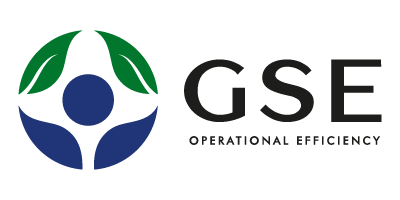The fast food industry is using up energy resources more than ever before due to the increasing demand for convenience and speed. This not only affects businesses’ carbon footprints but also contributes to climate change. To address this issue, many restaurants are turning to lean management systems as a way to reduce energy consumption and carbon emissions.
Lean Management Systems
Lean management focuses on reducing waste and maximizing efficiency in the workplace by streamlining processes, eliminating nonessential steps, and optimizing workflows. In terms of energy efficiency, lean principles can be used to identify areas of overconsumption — such as inefficient lighting or cooling systems — and replace them with smarter solutions that use fewer resources while still providing top-notch service. By doing this, companies can drastically cut down on their carbon footprint.
Additionally, lean management systems can help restaurants become more energy efficient by increasing efficiency and waste reduction in the kitchen and dining area. By making sure all cooking processes are performed optimally, using the right equipment for each job, and utilizing energy-saving methods such as low-flow faucets and LED lighting, fast food restaurants can make a significant impact on their carbon emissions.
The implementation of lean principles is not only beneficial to the environment but also helps businesses save money. It can reduce operational costs due to reduced energy consumption, as well as reduce labor costs through improved workflow efficiency. Ultimately, organizations that use lean management systems to decrease carbon footprints can experience increased sustainability while still providing quality food service at a reasonable price.
Appliance Monitoring and Operational Efficiency
To further reduce carbon emissions, fast food restaurants should consider monitoring the energy usage of their appliances. This will allow them to identify areas where they are using too much energy and take steps to reduce consumption. Additionally, they should look at operational efficiencies — such as scheduling kitchen staff appropriately and limiting customer wait times — to maximize energy savings while still providing great service.
By implementing lean management systems and appliance monitoring technologies, fast food restaurants can significantly decrease their carbon footprints without sacrificing quality or convenience. By reducing energy consumption and carbon emissions, businesses can not only help protect the environment but also improve their bottom line through cost savings. With a little effort, organizations in the fast food industry can make a big difference in protecting our planet for future generations.
Lowering Carbon Footprints in the Fast Food Restaurant Industry
The fast-food restaurant industry is responsible for a large carbon footprint due to high energy consumption and emissions. To decrease carbon emissions, businesses must look for ways to become more energy efficient through the implementation of lean management systems and appliance monitoring technologies.
By doing this, organizations can reduce their carbon footprint while still providing quality service at an affordable price. With proper planning and dedication, fast food restaurants can lower their carbon emissions and make a real difference in protecting our world.
Monitored and Controlled HVAC Units
In addition to the lean management systems and appliance monitoring technologies, fast food restaurants should consider investing in monitored and controlled HVAC units. By utilizing these units, businesses can monitor temperatures and adjust settings as needed to maximize energy efficiency. This type of technology will ensure that only the necessary amount of energy is being used while still providing a comfortable environment for customers.
The implementation of monitored and controlled HVAC units is not only beneficial for carbon emissions, but it can also help reduce operational costs — saving businesses money in the long run. Investing in this type of energy-saving technology is an important step towards becoming more sustainable in the fast food restaurant industry.
Monitored and Controlled Walk-In Units and Freezers
Another way to decrease carbon emissions in the fast-food restaurant industry is to invest in monitored and controlled walk-in units and freezers. Walk-in units and freezers can be extremely energy-intensive, so having a system that allows for proper monitoring and temperature control will help reduce energy consumption. By investing in this type of technology, businesses can significantly lower their carbon footprint while still delivering quality products at a reasonable cost.
Ultimately, implementing lean management systems and energy-saving technologies is key to reducing carbon emissions in the fast-food restaurant industry. With the right tools and dedication, organizations can make a positive impact on our environment while still providing delicious meals to customers. By making sustainability a priority, businesses can become more successful and lower their bottom lines.
Decreasing CO2 Emissions
The fast-food restaurant industry is responsible for a large carbon footprint due to high energy consumption and emissions. To decrease carbon emissions, businesses must look for ways to become more energy efficient through the implementation of lean management systems, appliance monitoring technologies, monitored and controlled HVAC units, and monitored and controlled walk-in units and freezers. By doing this, organizations can reduce their carbon footprint while still providing quality service at an affordable price.
Additionally, they should look at operational efficiencies — such as scheduling kitchen staff appropriately and limiting customer wait times — to maximize energy savings while still providing great service. By implementing these measures in the fast food industry, businesses can significantly reduce their CO2 emissions without sacrificing quality or convenience.
Commercial Energy Management Expertise from GSE Pro
At GSE Pro, we have the expertise and experience to help businesses in the fast-food industry reduce their carbon emissions. Our team of experts can provide tailored advice on how to implement energy-saving technologies such as monitored and controlled HVAC units, walk-in units, freezers, and appliance monitoring systems. We offer commercial energy management solutions that are designed to maximize energy efficiency while still providing great service at an affordable price.
If you’re looking for ways to reduce carbon emissions and decrease operational costs in your fast-food restaurant business, contact us today! Let us help you make a positive impact on our environment by implementing energy-saving solutions that will benefit both your bottom line and the planet. Explore GSE’s business intelligence energy management solutions today.




